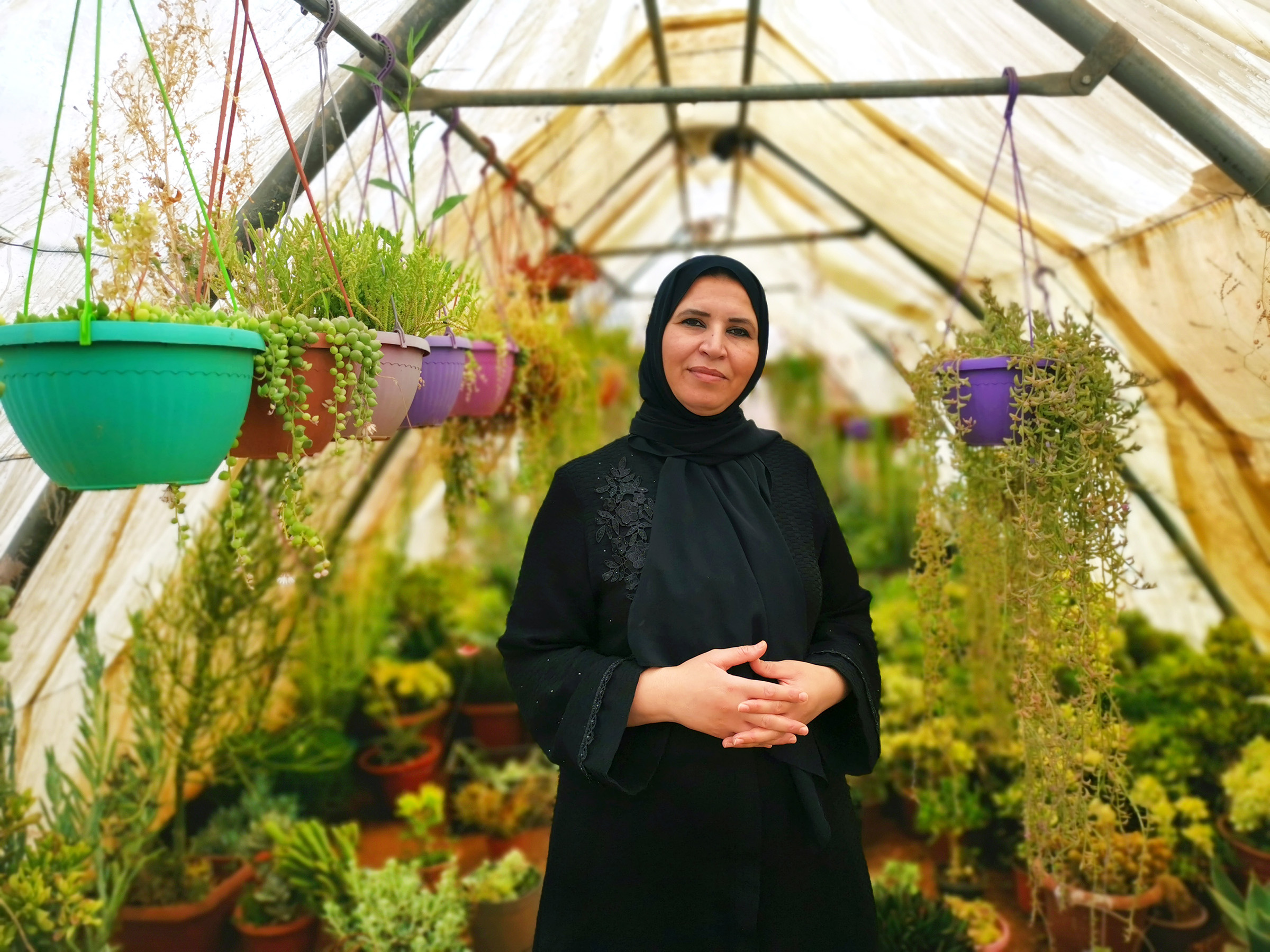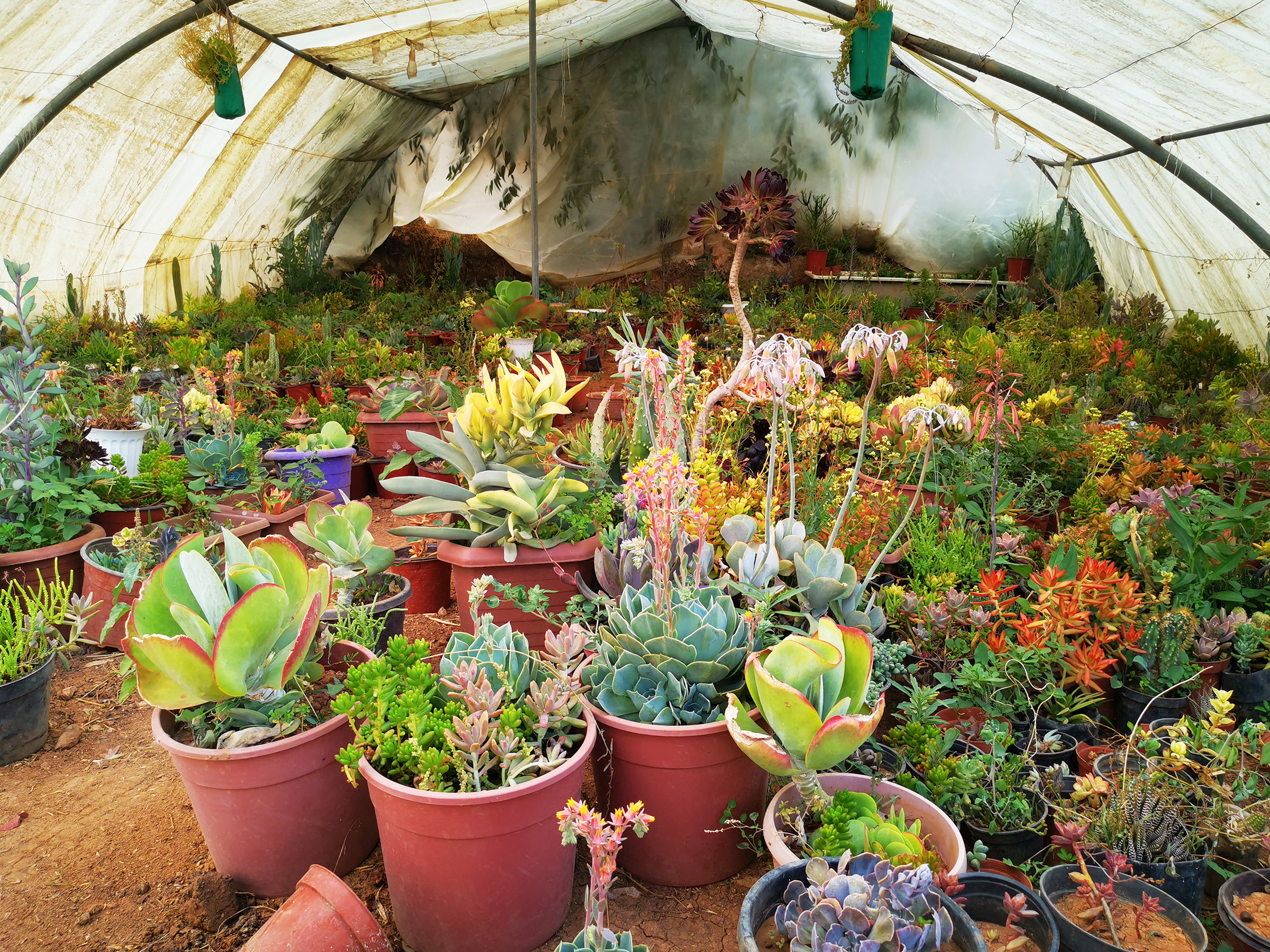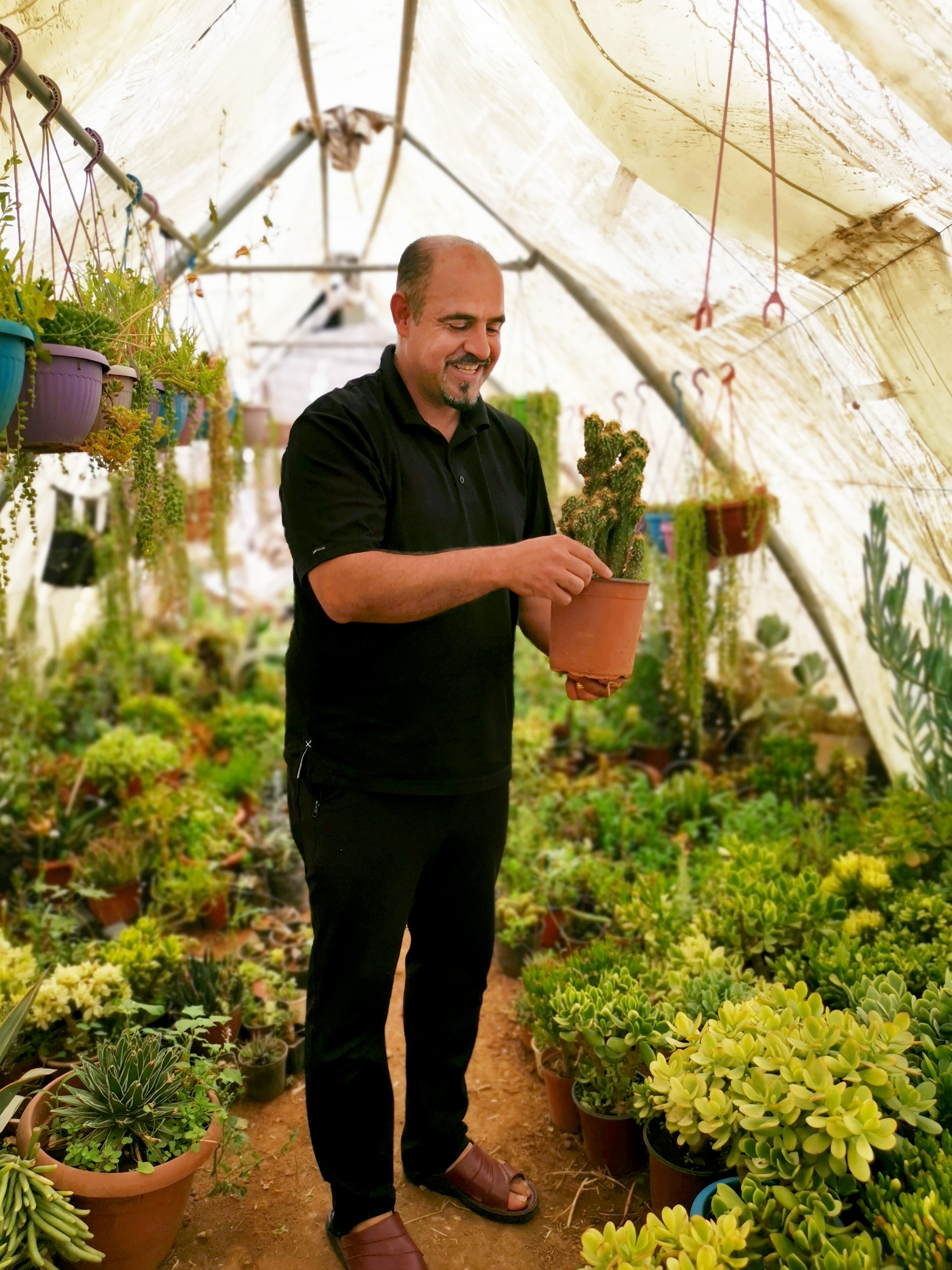Jordan is among the most water-scarce countries in the world, with renewable water resources per capita well below the global average.[1] This poses a major challenge for people who want to make a living off their agricultural land.
For Tamadur, a woman from Mafraq, Jordan, nothing seemed to grow well on her property. But as she looked over her dry land one morning, she noticed something was growing – a potted cactus on her balcony that had started sprouting. That’s when she had the idea to start a cactus and succulent farm.

Tamadur had always wanted to make something of her land. Unfortunately, the area lacks a sufficient supply of water, a critical resource to cultivate this tough terrain.
Tamadur, hoping to use the few natural resources at hand, started separating the small cacti to help them multiply and planting them in pots around her property. As the cacti grew in size and number, she began to sell them.
Operating a business was new to Tamadur and her family. She did not know how to manage the business, calculate costs and profits, or market her products. She also needed a proper greenhouse for the growing cacti and succulents but was not earning enough to invest in that level of equipment.
Faced with these challenges, Tamadur sought support to help grow her plant nursery. She came across a social media page for Smart DESERT, a program funded by the French Development Agency and implemented by a consortium of organizations led by the International Union for the Conservation of Nature. Within this consortium, Blumont leads an effort to directly support 255 agricultural home-based businesses to generate off-season income. Our team provides educational, administrative, and legal support to Syrian and Jordanian entrepreneurs before giving them resources to start or expand their at-home projects. With these tools, agricultural entrepreneurs can build sustainable sources of income.

Soon after Tamadur discovered the Smart DESERT program online and applied for support, she received guidance, legal support, training, and adequate equipment for her plant nursery.
Tamadur saw the potential for her business to benefit from the program’s trainings and comprehensive assistance. Excited at the opportunity, she applied online, joining a cohort of hundreds of home-based business owners in Jordan receiving support from Smart DESERT.
Once enrolled, Tamadur found the Smart DESERT trainings highly helpful – particularly the marketing and finance units. “After the training, I made a page for our project on social media, through which I was able to reach many customers who live in other governorates,” she said. “I did not have any previous knowledge about e-marketing, cost management, and profit calculation, but now I use all these skills to develop and improve my project.”

Smart DESERT empowers agricultural entrepreneurs like Tamadur and her husband with supplies and resources for sustainable success.
To overcome the financial barriers of a start-up, our team equipped Tamadur with greenhouses, pots, gardening tools, and peat moss for her cacti. These resources help her grow more plants, reduce costs, and supply new markets.
“The equipment from Smart DESERT sped up the production process and increased our sales. Currently, all our plants are inside greenhouses to protect them from weather, especially in cold winter periods,” she said.
With Tamadur overseeing and leading the business and her husband helping tend to the plants, their family has a new source of regular income despite water scarcity in the region. The couple has also taken on two part-time employees to meet the growing demand for their cacti and succulents.
In the desert, Tamadur’s business is blossoming.
[1] https://www.unicef.org/jordan/water-sanitation-and-hygiene



